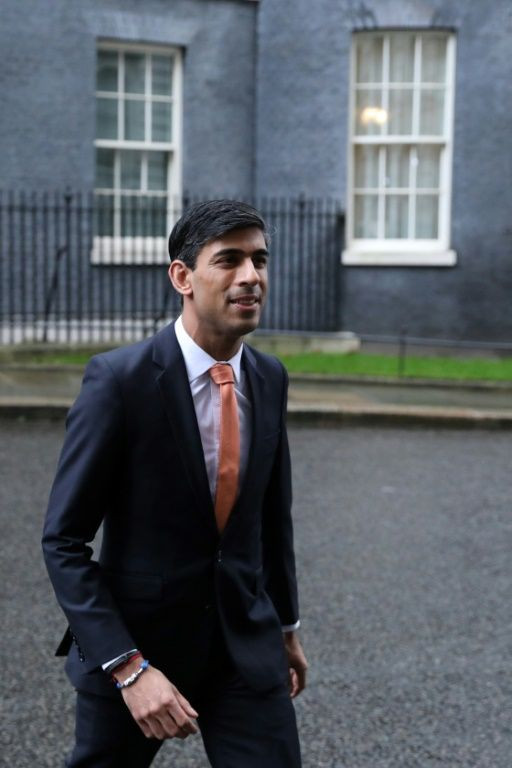British Government Will Only Bail Out Airlines As 'Last Resort'

KEY POINTS
- Sunak said airlines should first seek help from their stockholders
- Some airlines, like EasyJet, are still paying out huge dividends to shareholders
- Virgin Atlantic, Ryanair and EasyJet have grounded most of their aircraft.
Britain’s Chancellor of the Exchequer Rishi Sunak has told the country’s beleaguered airlines the government will not immediately bail them out and that they must first seek other avenues of funding.
Sunak’s comments apparently contradicted statements he made last week where he had pledged support for the industry.
U.K. airlines have suffered massive loss of income, cancelled flights and grounded aircraft since the coronavirus outbreak has brought air traffic to a standstill.
British Airways’ owner International Airlines Group has reduced capacity by 75%, while Virgin Atlantic, Ryanair and EasyJet have grounded most of their aircraft.
Airline chiefs have been asking for government financing to rescue their companies and prevent bankruptcies.
Last week, Richard Branson, chairman of Virgin Group, asked the government for £7.5 billion ($8.9 billion) of emergency funds for airlines.
Sunak urged airlines to seek funds from their shareholders, adding that the British government would intervene only as "a last resort" after airlines had "exhausted other options.”
“Given the significant importance of the aviation sector to our economy and economic recovery, the government is prepared to enter negotiations with individual companies seeking bespoke support as a last resort, having exhausted other options,” Sunak wrote in a letter to aviation executives on Tuesday. “However, further taxpayer support would only be possible if all commercial avenues have been fully explored, including raising further capital from existing investors and discussing arrangements with financial stakeholders.”
Sunak added however that Transport Secretary Grant Shapps might discuss “industry-wide measures” to help airlines cope with the immediate crisis.
“Our immediate focus is on liquidity and protecting jobs and we are working with the government to make best use of these measures,” said EasyJet, Europe’s second-biggest low-cost carrier.
The International Air Transport Association, or IATA, has warned of an "apocalypse" in the aviation industry unless governments provide help.
"Travel restrictions and evaporating demand mean that, aside from cargo, there is almost no passenger business," IATA chief Alexandre de Juniac. "There is a small and shrinking window for governments to provide a lifeline of financial support to prevent a liquidity crisis from shuttering the industry."
In turn, airports of all sizes have laid off hundreds of workers across the U.K. Some airports may have to be shut down.
Karen Dee, chief executive of Airport Operators Association, said the British aviation industry was "surprised" by Sunak's decision and that the sector will now have to "fight on its own to protect its workforce and its future.”
"While countries across Europe have recognized the vital role airports play and are stepping into the breach, the U.K. government's decision to take a case-by-case approach with dozens of U.K. airports is simply not feasible to provide the support necessary in the coming days," she said. "Not only does the decision today leave airports struggling to provide critical services, it will hamper the U.K. recovery."
The Financial Times reported that in the event the government does offer financial assistance to certain airlines, ministers would likely want an equity stake in return – thereby resulting in significant dilution to existing shareholders.
“It will be RBS style and not some soft loan,” a source told FT, referring to the government’s takeover of Royal Bank of Scotland during the 2008 financial crisis.
Some analysts predict dark days ahead for U.K. airlines in the absence of government aid.
“What helps [airlines] get the commercial finance is a government backstop that can reassure lenders they are not the final line of funding,” said Gerald Khoo, aviation analyst at Liberum. “Listed companies can’t raise equity fast enough in this situation, even if capital markets were open.”
The government reportedly was angered by the decision of some airlines, including EasyJet, to continue paying dividends to shareholders, despite its ongoing troubles. EasyJet responded that it was legally obligated to pay out £171 million ($201 million) to its stockholders – including £60m ($70.6 million) to its largest shareholder, Stelios Haji-Ioannou.
Nils Pratley agreed with Sunak’s decision in the Guardian.
“Major U.K. [airline] operators can withstand a fair amount of temporary financial pain,” Pratley wrote. “EasyJet and IAG, owner of British Airways, have boasted about the size of their cash balances and the depth of their credit facilities. Fine, let them use those resources… In the meantime, the simple message is correct: shareholders and owners need to look out for their own interests.”
© Copyright IBTimes 2024. All rights reserved.





















